African resistance movements played a significant role in the struggle against colonialism on the continent.
European powers, including Belgium, France, Germany, Italy, Portugal, and the United Kingdom, established colonies in Africa in the late 19th and early 20th centuries. This led to the exploitation of African resources, the suppression of African cultures, and the suppression of African political and economic development.
African resistance movements emerged to end European colonialism and establish independence for African nations. These movements took various forms, including armed resistance, non-violent protests, and diplomatic efforts.
One well-known example of an African resistance movement is the African National Congress (ANC) in South Africa. The ANC was founded in 1912 as a political party. Still, it became a resistance movement in the 1940s when it began to resist the racist policies of the South African government. This includes the system of apartheid, which enforced segregation and discrimination against non-white South Africans.
The ANC used a combination of tactics, including strikes, boycotts, and civil disobedience, to resist the government’s policies. In the 1990s, after decades of struggle, the ANC succeeded in ending apartheid. Then, it established a democratic government in South Africa.
Other examples of African resistance movements include the Mau Mau rebellion in Kenya, the Algerian War of Independence, and the anti-colonial movements in Angola and Mozambique. These movements played a crucial role in the struggle to end colonialism in Africa. And they paved the way for the development of independent nations on the continent.

Rebellions Against Colonial Rule Before World War II
From 1900, Europe began modifying the colonial rule to increase the money and resources earned from their colonies. These developments included removing land from Africans and transferring it to the colonies’ expanding number of Europeans.
Other changes included the imposition of tariffs such as the hut tax and poll tax. It obliged Africans to work for European settlers. To pay these levies, Africans were forced to labor for Europeans. This was because the new taxes had to be paid in cash rather than livestock or crops, as was previously the standard.
European employers’ exploitation of African laborers fueled growing discontent among the locals. African resistance movements began to emerge. The demand for additional land and labor caused tensions between colonial rulers and the white groups that had arrived in the colonies with an increasing number of settlers. More land was stolen from Africans and given to Europeans for settlement.
In response to these developments, several chiefs organized rebellions against colonial authorities. Zulu Chief Bambatha was one of the chiefs who organized an armed revolt against British colonial rule. He was dissatisfied with the loss of land and the one-pound poll fee that his people were forced to pay. He demanded that his people’s land be returned, and the poll tax be repealed.
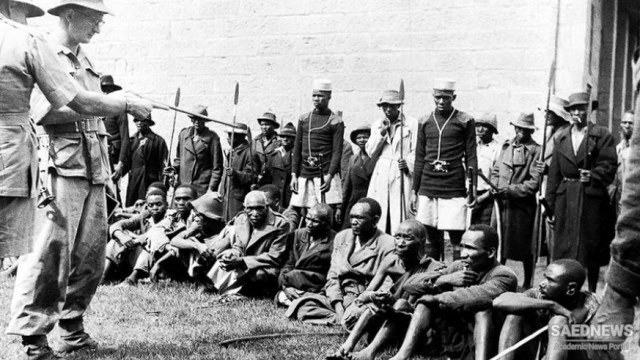
The Armed Revolt Was Suppressed
After a year, the armed revolt was finally suppressed. Chief Bambatha and his 3000 supporters were assassinated. Similar uprisings occurred in Eastern Africa, South West Africa, and Zimbabwe. They were all suppressed, just like the Bambatha rebellions. Afterward, Kinjigitile Ngwale organized the Maji Maji uprising in East Africa in 1905.
The uprising was against forced labor and tax policies imposed by the German government, which was launching a cotton program to boost exports. To carry out their plan, the Germans ordered Africans to produce cotton rather than their customary primary crops. And the Maji Maji rose in revolt.
These Maji Maji revolts had many similarities. They all strongly believed in African spirit mediums and a strong Ethiopian influence. This philosophy developed in Ethiopia. Ethiopianism’s goal was to reestablish African traditions and political systems. It was based on African trust in spirits to protect people.
People thought that the spirits could change European bullets into the water and that they could become bullet-proof by performing a purification ceremony before the battle. The early success of the Maji Maji rebellions bolstered the people’s faith in their spirit mediums. The African emphasis also succeeded in uniting various ethnic groups to fight for the same cause.
However, the Africans were doomed to lose when confronted with European machine guns. And they lost faith in Maji Maji’s protection. German soldiers killed over 26,000 civilians. To prevent similar rebellions, the colonial authority limited its use of force and began to rely heavily on missionary teaching to carry out colonial policy.
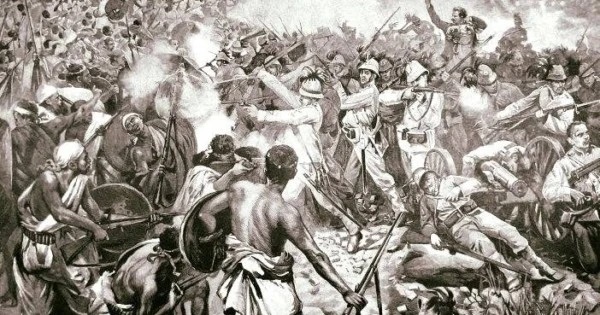
Different Forms of African Resistance Movements Against the Colonial Rule
Africans had long nursed resentments and hostility at colonial administrative intrusions, particularly labor demands. While attitudes were sometimes violently expressed between 1914 and 1918, they were rooted in pre-war colonial injustices.
In 1912, British colonial officials attempted to closely rule the Giriama people, who lived in Kenya’s coastal hinterland, in response to white settler demands for additional plantation labor.
Despite constant British expansion in the region, the Giriama had preserved autonomy up to this time. Giriama elders, whose authority was related to their control of young men’s labor, refused to help the local British administration with labor recruitment or tax collection.
Mekatilili, a charismatic female prophet who drew on “an established tradition of female prophecy,” also urged the Giriama to deny British requests. Her public statements combined a spiritual urge to restore community balance via resistance with the material grounds for Giriama’s protest.
In reaction to the then-ongoing Giriama disobedience, British colonial troops destroyed a ceremonial center (the kaya) in August 1914. This resulted in bolstering their energy to resist further.
Girama’s Continued Agitation
With the commencement of the war that same month, British efforts to obtain porters for the war effort took on additional significance. They tried unsuccessfully to persuade Giriama to give this workforce. A Giriama lady being raped by a colonial soldier “gave local Giriama the incentive they needed to fight.”
Giriama fighters shot at British forces and mission stations with bows and arrows, causing only minor damage. However, the King’s African Rifles (KAR) of the British colonial force inflicted severe damage on the Giriama in return: “the troops fired on all Giriama they met, whether hostile or not, and systematically confiscated goats and burned dwellings.”
We Design & Develop Websites, Android & iOS Apps
Looking to transform your digital presence? We specialize in creating stunning websites and powerful mobile apps for Android and iOS. Let us bring your vision to life with innovative, tailored solutions!
Get Started Today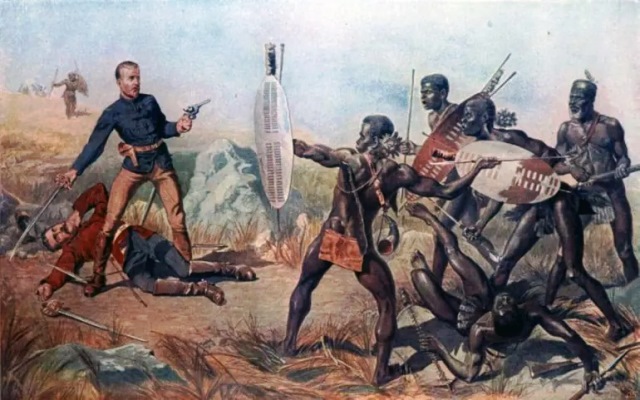
The Giriama refused to accept peace, and British retaliation against them lasted until October 1914. The Giriama were pushed into a reserve by the KAR in 1915, though many fled. The British levied a large fine and compelled 1,000 porters to labor for the KAR, which was now fully engaged in the East African struggle against the Germans. Drought, crop failure, and livestock losses all contributed to widespread hunger. Hence, they had to use their 1916 harvest to pay the 1915 fine.
Giriama’s resistance to British attempts to strengthen their administrative grasp on them beginning in 1912 cost them their economic independence. The wider historical framework of unequal interactions between colonizers and colonized is critical to understanding resistance between 1914 and 1918. Giriama’s efforts to maintain their political sovereignty failed, but they shattered colonial notions of order and security at a vital juncture.
The Chilembwe African Resistance Movements
Chilembwe’s resistance, which occurred in Nyasaland in January 1915, is one of the best-studied organized rebellions of the war in Africa and a powerful example of the ability of religious groups to alter how Africans perceived events before, during, and after the war.
John Chilembwe (1871-1915), a Baptist pastor who led the Providence Industrial Mission (PIM), a big congregation in Chiradzulu District, directed communal discontent within and around his parish. Chilembwe became a loud critic of colonial atrocities and an equally vocal champion for African independent Christian churches after receiving his theological education and ordination in the United States.
Rumors of conflict between the British and Germans and the prospect of rising labor demands fueled his advocacy. The PIM’s closeness to the Bruce Plantation—a visible instance of African land alienation, colonial exploitation, and brutal labor practices—fueled Chilembwe’s insurgent ambition.
The advent of many climatic and celestial indications in the years preceding the war added weight to Chilembwe’s understanding of the war as a cataclysmic event that would destroy Malawians if they did not respond.
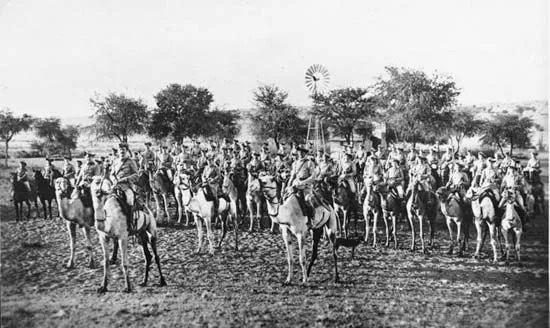
The Formation of Political Parties
Another reaction to colonial transformation was the development of political parties. These were created by a small educated group of Africans primarily residing in growing colonial towns. These Africans were educated at missionary schools.
Initially, these parties did not intend to gain a large following but rather to persuade their individual colonial governments to recognize African civil rights and to defend and recognize African land rights in rural areas.
The formation of political parties during this period reflected shifts in African nationalism. It was now greatly impacted by Western education and Christianity. This produced a new educated social group in Africa that was barred from participating in colonial rule because they were Africans.
Read: The Fascinating Life of Herbert Macaulay, a Nigerian Nationalist
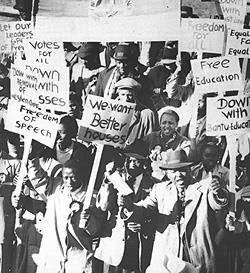
The Impact of African Resistance Movements on the Struggle Against Colonialism
African resistance movements played a significant role in the struggle against colonialism. These movements took many forms, from armed resistance to non-violent protests, and ranged in size from small groups of people to large-scale rebellions.
The African resistance movements successfully challenged colonialism and won independence for many African countries. They also inspired other resistance movements worldwide, including the American civil rights movement.
The impact of African resistance movements can still be felt today, and they continue to inspire people who are fighting for freedom and justice.
Before you go…
Hey, thank you for reading this blog to the end. I hope it was helpful. Let me tell you a little bit about Nicholas Idoko Technologies. We help businesses and companies build an online presence by developing web, mobile, desktop, and blockchain applications.
We also help aspiring software developers and programmers learn the skills they need to have a successful career. Take your first step to becoming a programming boss by joining our Learn To Code academy today!
Be sure to contact us if you need more information or have any questions! We are readily available.
Put Your Tech Company on the Map!
Get featured on Nicholas Idoko’s Blog for just $200. Showcase your business, boost credibility, and reach a growing audience eager for tech solutions.
Publish Now










